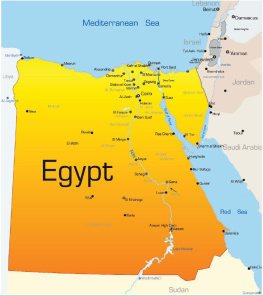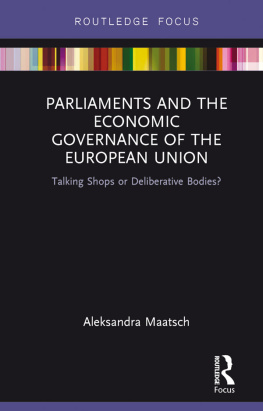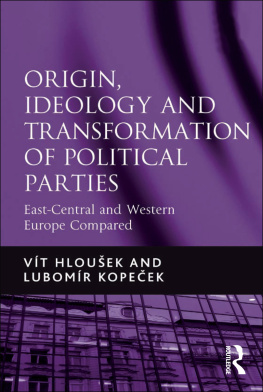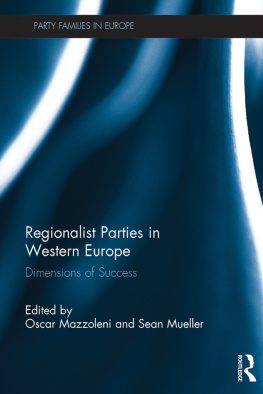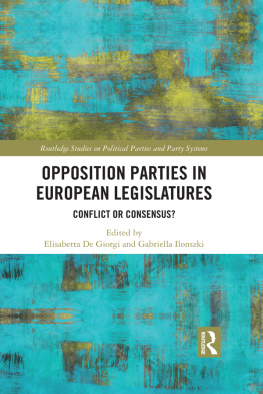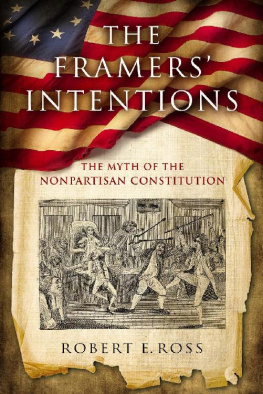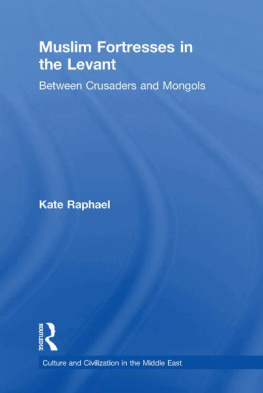ROUTLEDGE LIBRARY EDITIONS: POLITICS OF THE MIDDLE EAST
Volume 16
PARLIAMENTS AND PARTIES IN EGYPT
Parliaments and Parties in Egypt
Jacob M. Landau
First published in 1953 by the Israel Press Ltd
This edition first published in 2016
by Routledge
2 Park Square, Milton Park, Abingdon, Oxon OX14 4RN
and by Routledge
711 Third Avenue, New York, NY 10017
Routledge is an imprint of the Taylor & Francis Group, an informa business
1953 Jacob M. Landau
All rights reserved. No part of this book may be reprinted or reproduced or utilised in any form or by any electronic, mechanical, or other means, now known or hereafter invented, including photocopying and recording, or in any information storage or retrieval system, without permission in writing from the publishers.
Trademark notice : Product or corporate names may be trademarks or registered trademarks, and are used only for identification and explanation without intent to infringe.
British Library Cataloguing in Publication Data
A catalogue record for this book is available from the British Library
ISBN: 978-1-138-83939-7 (Set)
ISBN: 978-1-315-68049-1 (Set) (ebk)
ISBN: 978-1-138-92407-9 (Volume 16) (hbk)
ISBN: 978-1-315-68459-8 (Volume 16) (ebk)
Publisher's Note
The publisher has gone to great lengths to ensure the quality of this reprint but points out that some imperfections in the original copies may be apparent.
Disclaimer
The publisher has made every effort to trace copyright holders and would welcome correspondence from those they have been unable to trace.
PARLIAMENTS AND PARTIES IN EGYPT
by
JACOB M. LANDAU
Published for the Israel Oriental Society
by the Israel Publishing House
Tel-Aviv
1953
This book was presented as a Ph. D. thesis, named "Parliamen tary Institutions and Political Parties in Egypt 1866-1924", to the University of London, and approved by it in August 1949. The footnotes have been somewhat abbreviated and a concluding chapter, bringing the story up to the year 1953, has now been added.
All rights reserved by the author, 1953.
Printed by the Israel Press Ltd.
P.O. Box 6048, Tel-Aviv, Israel
Professor Bernard Lewis, Professor of Islamic History in the School of Oriental and African Studies, University of London, not only supervised my research during the preparation of the present book, but kindly agreed to write a Foreword to it as well. Professor S. D. Goitein, Head of the School of Oriental Studies, Hebrew University, Jerusalem, and President of the Israel Oriental Society, along with the other members of the Publications Committee of the above Society, showed constant interest in my work. Dr. I. Shamush, lecturer in modern Arabic Literature at the Hebrew University, kindly advised me, in various instances, regarding the transliteration o Arabic names into English. Mr. J. Boehm, of Tel-Aviv, read the Conclusion and offered me some sound advice. Mr. S. Merlin and bjs colleagues of the Israel Publishing House and the Israel Press Ltd. made the publication of this work possible by their considerateness. Mr. J. R. Walsh, now lecturer in Turkish at the University of Edinburgh, and Mr. S. Dembo, of Tel-Aviv, kindly read the whole ms. and suggested various improvements in its style; while Mr. G. Fraenkel, of Jerusalem, was good enough to undertake the not less arduous task of correcting the proofs. To all of them go my heartfelt thanks.
J.M.L.
Table of Contents
| by Professor Bernard Lewis |
During the 19th century a new generation of thinkers and leaders grew up in the Middle East, who had been educated in western schools, and were full of admiration for Western ideas and institutions. Seeing in these the secret of Western power ana prosperity, they sought to apply them in their own countries, in the confident hope that in this way they would soon end their backwardness and subordination and take their place as free and equal partners in the Western world. Not the least potent of these Western ideas was the principle of constitutional and representative government, which spread eastwards like wildfire across the continent of Europe and soon inspired a generation of liberal patriots to strive and suffer in the lands of the Middle East. In time, the new political order conquered in most areas, and a series of parliaments, constitutions and political party organizations appeared all over the Middle East, in what seemed a universal triumph of liberal and democratic principles.
In our own time great changes have taken place, and the growing disappointment of the peoples of the Middle East with their imported institutions has led to a stronger reaction against them. It was perhaps inevitable. A political system taken over ready-made from another society must fail in many respects to correspond to the different strains and stresses of that to which it is applied. In a long period of tranquillity the peoples of the Middle East might perhaps have succeeded in adapting Western political institutions to their own needs and traditions. But no such period was allowed to them. Instead, difficulty was added to difficulty, disappointment to disappointment. The Western Powers, without exception, failed to accept that freedom and equality which the reformers had so hopefully anticipated. The reformers themselves, a small westward-looking minority, became less representative as the nationalist movements which they led became truly national. All too often, the disappointment and frustration of political leaders gave way to a cynism and opportunism that outraged the moral and religious sense of those whom they professed to lead.
It is in Egypt that party and parliamentary government has the longest record in the Middle East in Egypt too that its final collapse and replacement by a new and different order can he most clearly seen. It is therefore a good choice for a first detailed investigation of this problem. Dr. Landau's study, for which he was awarded the degree of Ph. D. in the University of London, has now been revised and extended. I am happy to introduce this valuable monograph, which will throw much light on an important aspect of the rise and fall of Western influence in the Middle East.
Bernard Lewis
London, April 1953.
Egypt was the first Arabic-speaking country to throw off the yoke of Turkish rule which, from the time of Mu h ammad 'Al onwards, was hardly more than nominal. However, Turkish cultural and social influence did not disappear, but remained distinctly evident amongst the upper classes. On the other hand, European influence was gradually penetrating into Egypt and, to a large extent, supplanting Turkish predominance.
The impact of the West became obvious in the politicalconstitutional field with the gradual adoption of Western patterns of government and political life. In 1866, Ism'l Pasha created a consultative elected Assembly of Notables along the lines of Western Parliaments. It took almost sixty years for this Assembly to develop into something like a European Parliament.
The political parties also imitated Western models in their organization, programmes, propaganda, etc. Though outwardly westernized and compact, most of these parties shivered on the first reef. For the sake of understanding the modern history of the Near East, it is a work of first importance to trace the development of parliamentary institutions and political parties in Egypt and to consider the extent of European influence on their inception, evolution and disruption.


